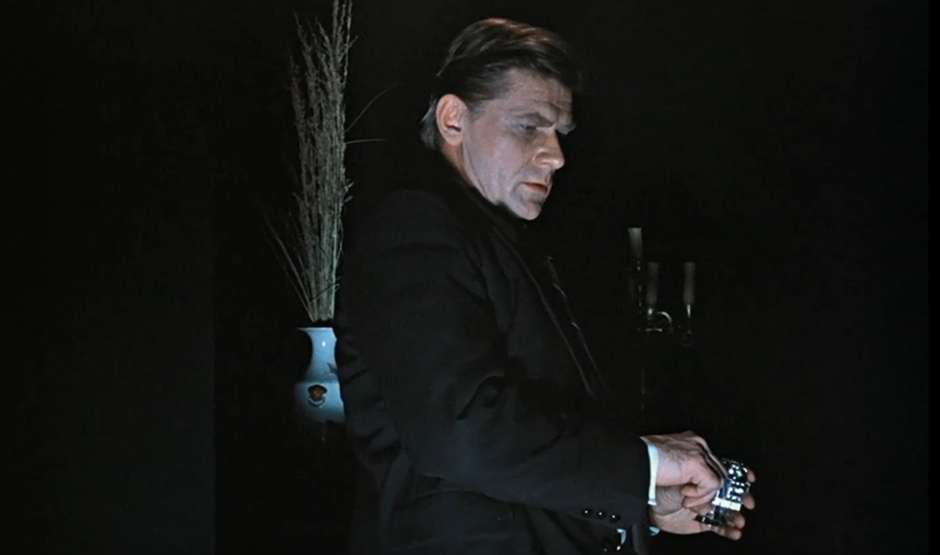Scum (1979) Review
- Benjamin May
- Jul 9, 2023
- 3 min read
Updated: Mar 17, 2025

It is the late 70's and the borstal system is in full effect in England. To one such institution a young man by the name of Carlin is sent. Though ostensibly there for reform and education, the brutality of the place and its inhabitants (wardens and inmates alike) is more conducive of violence than rehabilitation. Facing daily beatings and constant subjugation, Carlin soon realises that he must rise up the pecking order if he wants any kind of respect or security, and that the best way to do that is through thuggery. Whether or not Carlin will conquer the borstal, or be destroyed by the place, remains to be seen in Alan Clarke's uncompromising, unforgettable 'Scum.'
'Scum' is a cutting treatise against borstals and those who ran them, which must have shocked audiences when it was released. It was not until the passing of The Criminal Justice Act of 1982 that borstals were officially shuttered across the UK, so the film was a most contemporary excoriation in 1979. Clarke had actually filmed 'Scum' two years earlier, for the BBC'S Play For Today series. It was deemed too unremitting for television, so it was rewritten, the same cast (largely) were assembled- as well as a new crew- and 'Scum' was reshot and released as the full-length feature discussed here now.

'Scum' is a tough film, one that is immensely affecting and unpredictable. The tale is bleak and harrowing, full of uncomfortable moments of persecution and ferocity. Written by Roy Minton, the story portrays the system of borstal to be a deeply flawed one that does more harm than good, led by brutes and disinterested stooges who believe that mercilessness is a positive attribute. The children have no hope of amelioration when trapped in that vicious, defunct system. The savagery they engage in is a barbaric but understandable, inevitable cry of frustration against the detachment and callousness with which they are treated.
The film is shot by cinematographer Phil Meheux, who has worked on movies ranging in quality and subject matter from 'The Long Good Friday' to 'Beverly Hills Chihuahua.' His work for 'Scum' is strikingly natural and gritty. He captures the starkness of the institution and its grounds with his documentary-style camera work masterfully, reinforcing the aura of cold nastiness which surrounds and envelops the inmates. Mike Porter's unembellished production design must also be mentioned, as it is understated work that is most notable, making the locations look lived-in and true-to-life. Additionally, Michael Bradsell's tight editing keeps the film running smoothly at a fast, even pace; ever building in intensity towards an explosive finale.

The great Ray Winstone stars as Carlin, delivering an intense, towering performance that is captivating and frightening both. One of his first acting roles, he performs with an ease and power unmatched by the rest of the cast, dominating the movie completely. Never once do you feel that Winstone is acting on screen, he inhabits the character of Carlin as if by birth-right. Playing him like a young Richard III and Reggie Kray combined, Winstone showcases seemingly boundless depth, energy and ability; leaving an indelible impression on the viewer.
Winstone's supporting cast don't let him down, each and all delivering strong performances, with a few particularly of note. Mick Ford plays a fellow inmate named Archer, who believes in pacifism, and Julian Firth stars as another, the introverted, ill-fated Davis. Both impress with their emotional range and perspicuity. John Judd and Philip Jackson star as two of the wardens, both playing sadistic egocentrics with real verve and panache. Judd is especially sinister, and his seedy grin will no doubt linger in the mind long after the credits have rolled on 'Scum.'

Uncompromising and unforgettable, Alan Clarke's 'Scum' is a powerful piece of cinema that holds a mirror up to society; reflecting back a cruel, cold and very real vision of life in the borstal system. Featuring strong performances all round- including a commanding central one from Ray Winstone- as well as striking visuals, the film impresses on nearly every level. It is shockingly violent and sadly realistic, making it hard to watch; but also thoroughly impossible to ignore.




